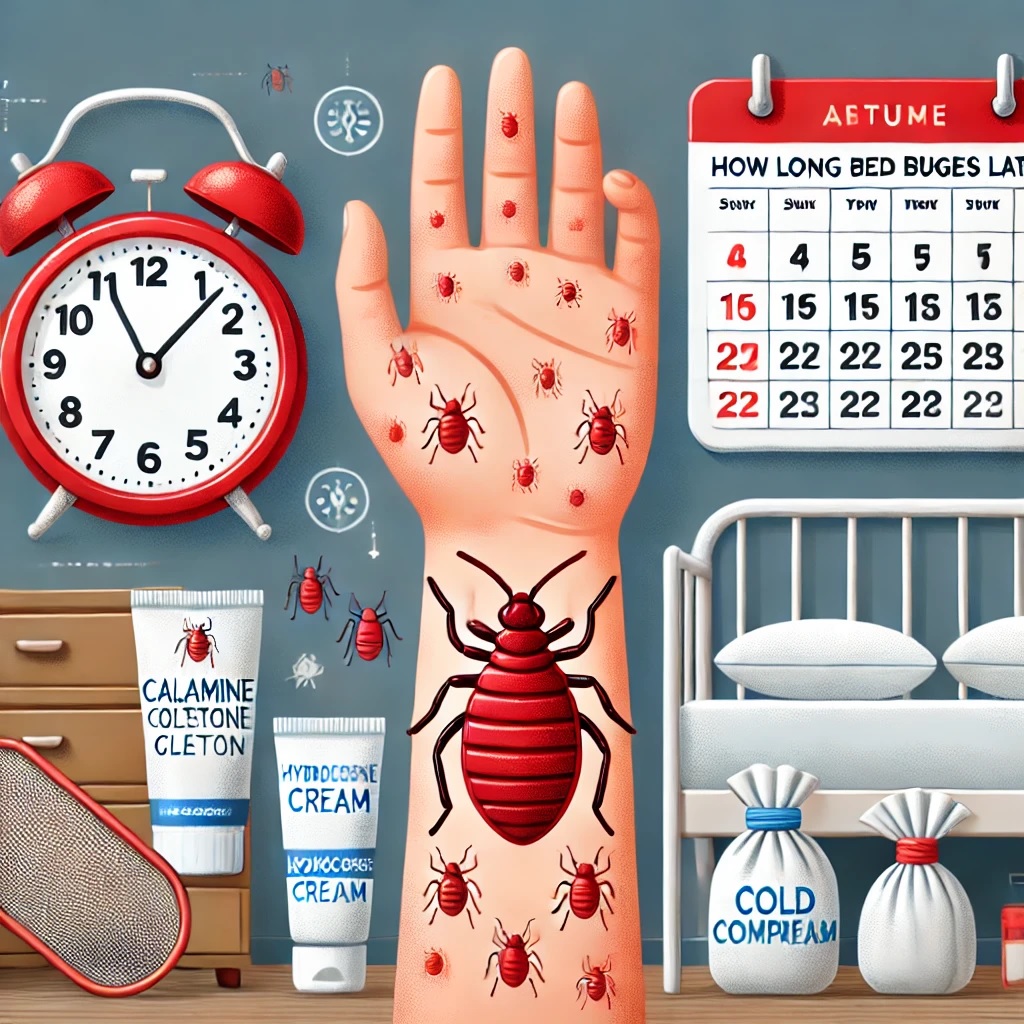Let’s be honest—finding bed bug bites on your skin can be a real nightmare. You wake up with itchy, red welts and start wondering, how long will this last? It’s a question we get a lot at ThermoPest, and for good reason. Bed bug bites are uncomfortable, and all you want is for them to go away as quickly as possible. The good news is, that they don’t last forever, but understanding the healing process can help you manage the discomfort and speed things up.

The first thing to know is that everyone’s body reacts a little differently to bed bug bites. For most people, the bites will last anywhere from a few days to two weeks. It’s not just the bite itself that can drive you mad—it’s the itchiness that lingers.
Bed bug bites often don’t show up straight away. In fact, it can take anywhere from a few hours to a whole day for those red bumps to appear after you’ve been bitten. And when they do, it’s usually the itchiness that catches your attention first.
On average, bed bug bites last around one to two weeks. If you have sensitive skin, the bites might stick around a bit longer, while others might find they disappear after just a few days. The more you scratch, the longer they’ll take to heal, which is why it’s so important to resist the urge (easier said than done, I know).
Several factors can affect how long you’re stuck with these irritating bites. Let’s take a look at what’s going on under the skin.
Some people seem to barely react to bed bug bites, while others end up with red, swollen welts that last for days. If you have sensitive skin, you might notice that your bites are more severe and take longer to go away. Kids and elderly family members also tend to have a stronger reaction, making it even more important to treat the bites properly.
If you’re dealing with a small infestation and only have a few bites, the healing time will likely be shorter. But if you’re getting bitten night after night, the bites can pile up, making the healing process longer and more uncomfortable.
We’ve all been there—you try to ignore the itch, but at some point, you just have to scratch. The problem is that scratching can break the skin, making you more likely to get an infection. And once an infection sets in, the bites will last longer, be more painful, and may even require medical attention.
You don’t have to just wait around for bed bug bites to go away. There are a few things you can do to speed up the healing process and soothe that annoying itch.
The first step is to keep the bites clean. Gently wash them with mild soap and warm water as soon as you notice them. This will help reduce irritation and lower the risk of infection. Clean skin tends to heal faster, so it’s a quick and simple step you shouldn’t skip.
Calamine lotion or hydrocortisone cream can work wonders to ease the itch and reduce swelling. I’ve had clients tell me they always keep these in their medicine cabinet, especially after dealing with a bed bug infestation. Just a thin layer over the bites can make a big difference in how they feel.
If you’re more into natural remedies, you might want to try aloe vera or a cold compress. Aloe vera is great for soothing irritated skin, and a cold compress can help numb the area and reduce swelling. Some people even swear by oatmeal baths for relieving the itch. It’s an easy and gentle option if you’re dealing with bites all over your body.
If the bites are really driving you mad, you could consider taking an antihistamine like Benadryl. This can reduce the body’s allergic response to the bites, helping to reduce both the itching and swelling. It’s also handy if the bites are keeping you up at night—nobody enjoys tossing and turning because of an itch they can’t scratch.
We all know it’s tempting to scratch, but trust me, it’s best to avoid it. Here’s why:
The more you scratch, the more you risk breaking the skin. Once the skin is broken, bacteria can get in, leading to infection. Infected bites can swell up, become redder, and last a lot longer than they should. So, if you catch yourself scratching, try covering the bites with a bandage or wearing loose clothing that doesn’t rub against your skin.
One trick I’ve found useful is to cover the bites, either with a light bandage or clothing. This creates a barrier between the bites and your hands, making it harder for you to absentmindedly scratch. Plus, it helps protect the skin from getting irritated by fabrics or bedding.
For most people, bed bug bites are just an itchy nuisance that goes away after a week or two. But if you notice signs of infection—like pus, increased redness, or if you develop a fever—it’s time to see a doctor. They might prescribe antibiotics to clear up the infection and help the bites heal faster.
If you’re having a severe allergic reaction (which is rare but possible), you should also seek medical advice. This could include difficulty breathing, swelling beyond the bite area, or bites that just won’t go away after several weeks.
The best way to deal with bed bug bites is to stop them from happening in the first place. If you’re dealing with a bed bug infestation, it’s important to take action as soon as possible. At ThermoPest, we use non-toxic heat treatments that are safe for your family and pets. This method effectively kills bed bugs at all stages of their life cycle—eggs, nymphs, and adults—ensuring they’re completely wiped out.
Once your home is bed bug-free, take a few simple steps to keep them from coming back:

So, how long do bed bug bites last? Usually between a few days and two weeks. It all depends on your skin, the severity of the infestation, and how well you care for the bites. The good news is, with the right treatment, you can manage the itch and help your skin heal faster. And the best way to stop bed bug bites altogether? Get rid of the bed bugs with the help of ThermoPest. We’re here to make sure you can sleep soundly, and bite-free!
If you’re ready to take control of your bed bug problem, contact us today!